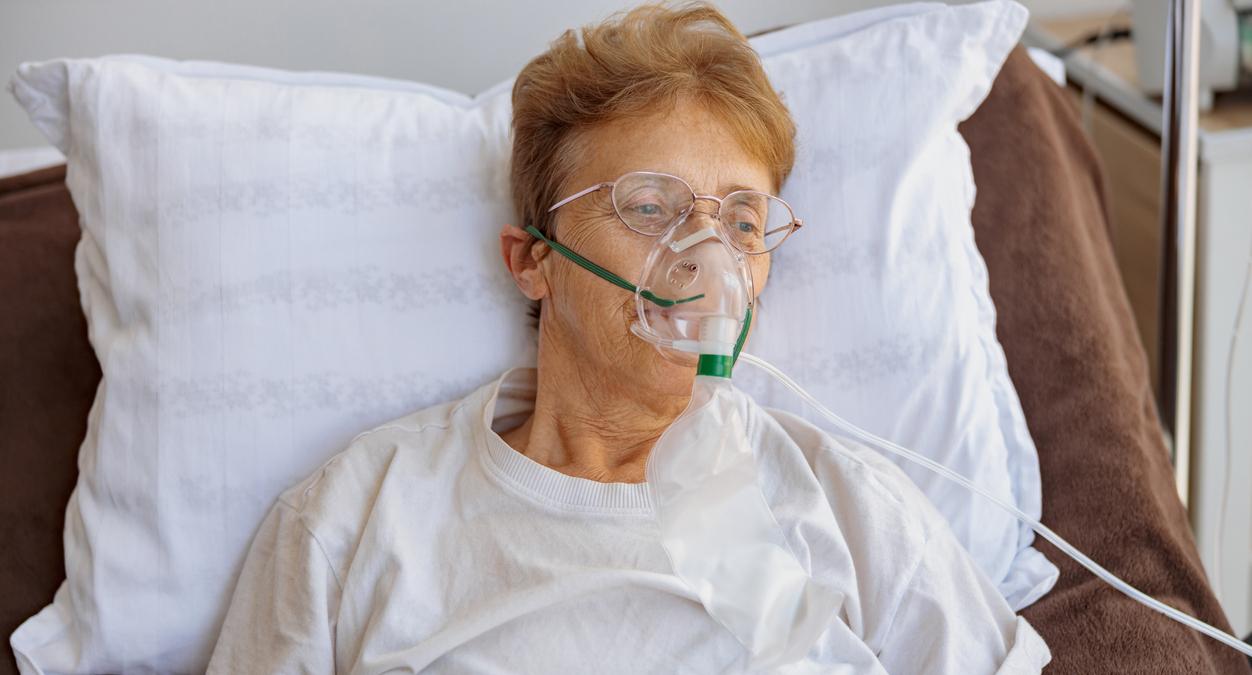A study yesterday in JAMA Internal Medicine demonstrates that 22% of hospitalized adults aged 50 years or older with respiratory syncytial virus (RSV) infection experienced an acute cardiac event—most frequently acute heart failure (16%). Moreover, 1 in 12 of infected patients (8.5%) had no documented underlying cardiovascular disease.
RSV is associated with annual totals of up to 160,000 US hospitalizations, 10,000 deaths, and $4 billion in direct healthcare costs among adults age 65 years or older.
"Despite evidence of considerable RSV-associated morbidity, mortality, and health care expenditure, the potential severity of RSV infection in adults has historically been underappreciated by public health professionals and clinicians," the authors write. RSV is rarely tested for in the clinical settings, and symptoms usually mirror other respiratory diseases, they add.
Despite evidence of considerable RSV-associated morbidity, mortality, and health care expenditure, the potential severity of RSV infection in adults has historically been underappreciated.
The study consisted of outcomes among 6,248 adults aged 50 years and older hospitalized for RSV during 2014 to 2018, and then in 2022 and 2023, in 12 US states. Almost 60% of the adults were women, and 65.9% were White.
Upon hospital admission, 93.1% of those included in the study had a fever, and 80.6% had a cough.
Heart failure most common event
A total of 56.4% of patients had underlying cardiovascular disease, including 31.9% with heart failure, 30.2% with coronary artery disease, and 25.2% with atrial fibrillation. After cardiovascular disease, diabetes (35%) and chronic obstructive pulmonary disease (34.8%) were the most common underlying conditions.
According to the authors, the weighted estimated prevalence of experiencing an acute cardiac event among adults aged 50 years or older hospitalized with laboratory-confirmed RSV infection was 22.4% (95% confidence interval [CI], 21.0% to 23.7%.) Among those events, acute heart failure was the most common, with a prevalence of 15.8% (95% CI, 14.6% to 17.0%) in all RSV-infected patients.
Patients with underlying cardiovascular disease had a greater weighted risk of experiencing an acute cardiac event of any category compared to those without underlying cardiovascular disease (33.0% vs 8.5%). A history of heart failure, age 85 years or older, and atrial fibrillation were also associated with a higher risk of having an acute cardiac event.
Experiencing an acute cardiac event during hospitalization was also associated with more severe RSV outcomes, including intensive care unit admission, invasive mechanical ventilation, and in-hospital death.
"Acute cardiac events occurred frequently among adults with a history of underlying cardiovascular disease, particularly chronic heart failure," the authors concluded. "However, acute cardiac events also occurred in 1 in 12 adults who had no previous documentation of cardiovascular disease, suggesting that severe RSV infection may precipitate or reveal previously undiagnosed cardiovascular disease."
RSV vaccine uptake low
Awareness of RSV's costly impact in the United States is growing, however, and in 2023, the first vaccine for adults ages 65 and older was approved for use in older Americans.
In an editor's note published on the study, Tracy Wang, MD, MHS, a JAMA Internal Medicine associate editor, warns that RSV vaccine uptake among older Americans has been very low, much lower than flu vaccination.
"Prior RSV-related efforts have focused on infants and young children, with many clinicians and patients still unaware of RSV burden of disease and prognosis in older adults," Wang writes. Moreover, RSV vaccines are inconsistently covered by insurance carriers.
"This coverage difference means that many clinic offices need to refer patients to pharmacies for vaccination, and out-of-pocket costs may be necessary for vaccination," she adds. "Vaccine fatigue and access barriers among currently eligible persons need to be addressed to enhance uptake by those who stand to benefit."

















